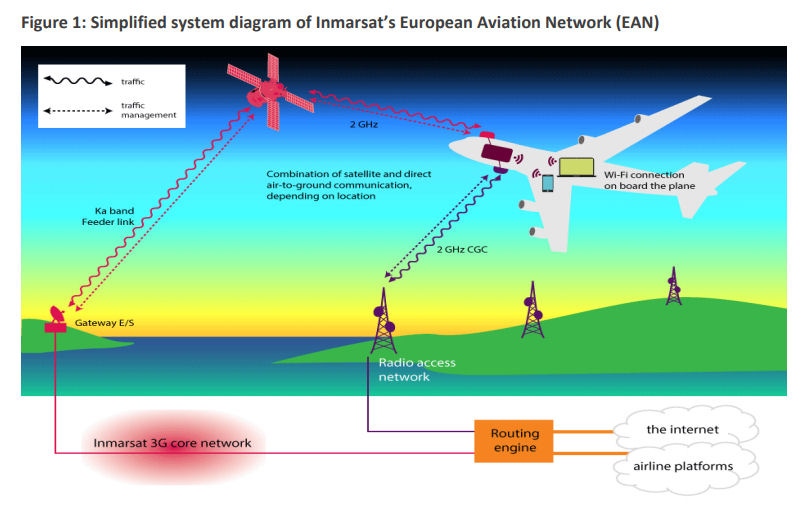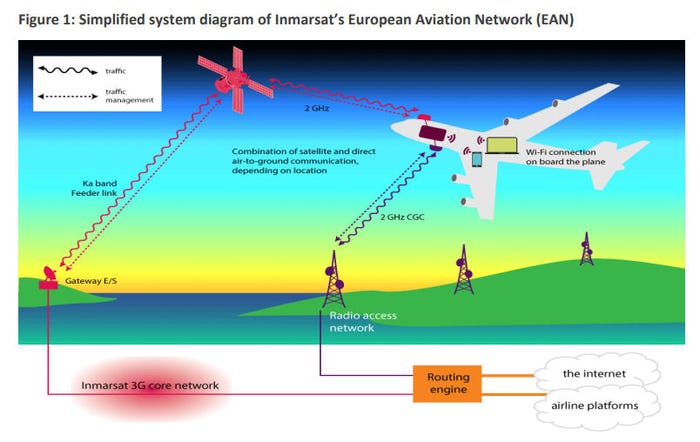Communications satellite company Inmarsat has received the all clear from UK telecoms regulator Ofcom to build ground based stations.
October 10, 2017

Communications satellite company Inmarsat has received the all clear from UK telecoms regulator Ofcom to build ground based stations.
This seems to have been a necessary extra permission needed for Inmarsat to include the UK in its European Aviation Network, on top of the license to provide mobile satellite services over the 2 GHz frequency band, which was granted by both the European Commission and Ofcom back in 2009.
The need for CGCs (complementary ground components) is illustrated below by a diagram taken from Ofcom’s official document on the matter.

The use of the 2 GHz license for aeronautical, as opposed to terrestrial, coverage is contentious. Inmarsat competitor ViaSat, which presumably doesn’t hold such a license, is especially unhappy about it, arguing that the aeronautical use-case wasn’t on the table when the band was auctioned. The implication is that ViaSat would have had more of a go at getting some 2 GHz action if it had known this would be allowed.
We have some sympathy with ViaSat if that is how the auction process played out. Regulation can have a very profound influence on the fortunes of a telco and if in-flight connectivity turns out to be a big deal then those excluded from it are entitled to feel hardly done by. But with regional regulators like Ofcom giving it the all-clear it seems to be a done deal.
About the Author(s)
You May Also Like








.png?width=300&auto=webp&quality=80&disable=upscale)


_1.jpg?width=300&auto=webp&quality=80&disable=upscale)


.png?width=800&auto=webp&quality=80&disable=upscale)